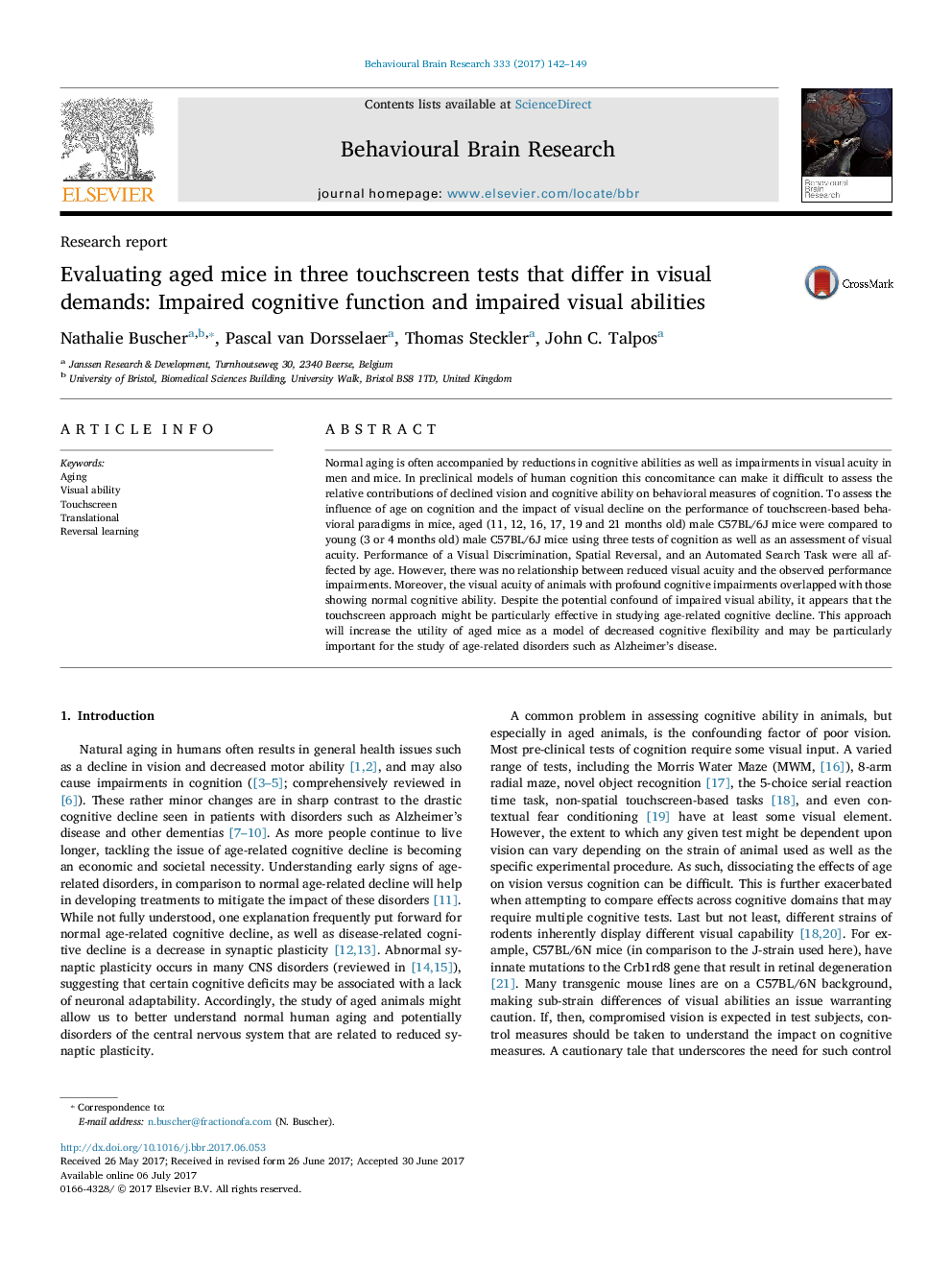ترجمه فارسی عنوان مقاله
ارزیابی موش های سالم در سه آزمایش لمسی که با خواسته های بصری تفاوت دارند: عملکرد شناختی اختلال و اختلال در توانایی های بینایی
عنوان انگلیسی
Evaluating aged mice in three touchscreen tests that differ in visual demands: Impaired cognitive function and impaired visual abilities
| کد مقاله | سال انتشار | تعداد صفحات مقاله انگلیسی |
|---|---|---|
| 128264 | 2017 | 8 صفحه PDF |
منبع

Publisher : Elsevier - Science Direct (الزویر - ساینس دایرکت)
Journal : Behavioural Brain Research, Volume 333, 30 August 2017, Pages 142-149
ترجمه کلمات کلیدی
سالخورده، توانایی بصری، صفحه لمسی، ترجمه یادگیری معکوس،
کلمات کلیدی انگلیسی
Aging; Visual ability; Touchscreen; Translational; Reversal learning;

